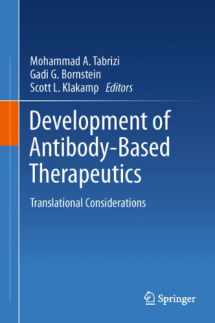
Development of Antibody-Based Therapeutics: Translational Considerations
Book details
Summary
Description
Translational strategies for development of antibody-based therapeutics should allow understanding of the relationship between the ‘unit dose’ and ‘unit effect’ with respect to both beneficial and deleterious effects from early stages of development. The flow of information from later to earlier stages of development should provide opportunities to facilitate selection of more effective novel and next-generation drug candidates. Selection and evaluation of relevant biomarkers in early preclinical development in "relevant" animal models should allow for identifying potential risks to humans and establishing safe First-In-Human (FIH) dosing strategies. Hence, integration of knowledge with respect to target antigen properties such as antigen distribution, expression profile, kinetic properties, target pharmacology, antigen isoforms and pharmacological redundancy in health and disease, as well as antibody design criteria, such as antibody isotype, affinity, PK/PD and safety is a critical necessity for the design of effective translational strategies. Additionally, these factors will further offer critical differentiating characteristics for next-generation antibodies, and novel technologies prove instrumental in generation of biosuperior antibody candidates for market entry. This book will examine many important considerations necessary for the design of effective translational strategies during the development of antibody-based therapeutics.


We would LOVE it if you could help us and other readers by reviewing the book
Book review



